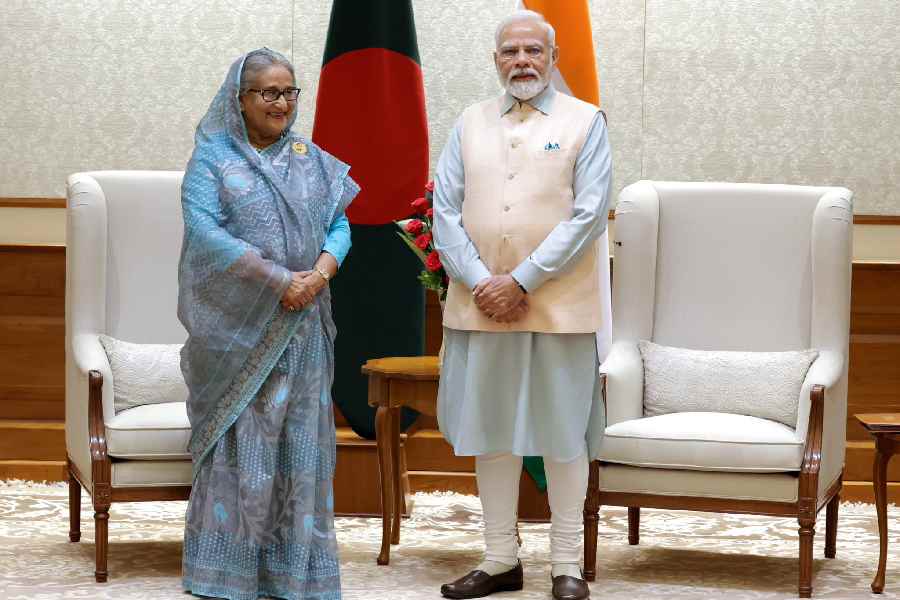Claim: Following the resignation of former Prime Minister Sheikh Hasina, Bangladesh has descended into chaos, with misinformation campaigns in India exacerbating tensions and potentially threatening the future of Bangladesh-India relations.
Fact-Check:
- Political Instability in Bangladesh:
- Claim: Bangladesh entered a period of instability and lawlessness after the resignation of Sheikh Hasina, with no government in place until Dr. Muhammad Yunus took office on August 8.
- Fact: The resignation of Sheikh Hasina indeed led to a period of uncertainty in Bangladesh. However, the interim government’s formation, led by Dr. Muhammad Yunus, has been aimed at stabilizing the country. Reports of violence and crime, while concerning, are not entirely unexpected during a transition of power, especially after 15 years of one-party rule. However, the portrayal of the situation as a complete breakdown of law and order is exaggerated.
- Misinformation and Communal Tensions:
- Claim: Indian social media and news outlets are spreading misinformation about the situation in Bangladesh, particularly regarding the persecution of minority communities.
- Fact: Misinformation campaigns have indeed been identified, with some Indian media outlets and social media personalities amplifying unverified or false reports. For instance, claims about widespread attacks on minority communities, while based on some real incidents, have been sensationalized without proper verification. The Bangladesh Hindu Buddhist Christian Oikya Parishad did report incidents of violence, but these are not indicative of a broader trend of religious persecution. Indian authorities, such as the West Bengal Police, have urged the public to be cautious of misleading reports.
- Impact on Bangladesh-India Relations:
- Claim: Misinformation from India could harm Bangladesh-India relations, leading to increased tension and a potential breakdown in cooperation.
- Fact: While the spread of misinformation can strain relations between countries, it is essential to recognize the efforts by both Bangladesh and India to manage these tensions. The Indian government has shown some awareness of the issue, with official statements cautioning against the spread of false information. Nonetheless, the situation underscores the need for better communication and cooperation to prevent misinformation from influencing bilateral relations.
Analysis: Misinformation campaigns during times of political transition can have significant consequences, not just within the affected country but also in its international relations. In the case of Bangladesh, the period following Sheikh Hasina’s resignation has been marked by both real and exaggerated reports of instability. The amplification of these reports by certain Indian media outlets and social media influencers risks inflaming tensions and could potentially damage the long-standing relationship between the two countries.
Conclusion: The current situation in Bangladesh is complex, and while there are genuine concerns, the portrayal of the country as descending into chaos is an oversimplification. Misinformation, particularly from external sources, poses a real threat to the stability of Bangladesh and its relations with India. Both countries must work together to combat false narratives and ensure that their relationship remains strong during this transitional period.
For All Political Enthusiasts
Misinformation refers to false or inaccurate information that is unintentionally spread. It can occur due to misunderstandings, misinterpretations, or errors. Misinformation is often shared innocently, without malicious intent.
Examples of misinformation include:
- Rumors: Spreading unverified stories or claims.
- Mistaken Identity: Incorrectly attributing an event or statement to the wrong person.
- Outdated Information: Sharing facts that were once true but have since changed.

